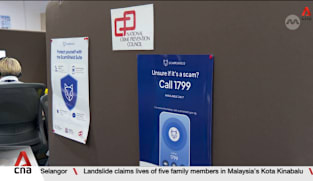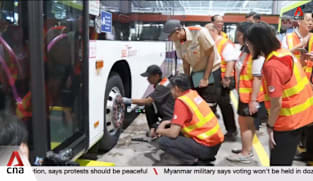Koh Poh Koon on Platform Workers Bill
Singapore will become one of the first countries in the world to provide statutory protections for platform workers as a distinct group from employees, with changes proposed under a new Bill. With the nature of platform work being “precarious”, support and protection for them will be strengthened in three areas. First, platform workers will be entitled to the same housing and retirement security as employees with the same income, through the CPF system. CPF contribution rates for platform operators and workers will be increased gradually over five years. Contribution will be mandatory for platform workers born from 1995 onwards and optional for those who are older. To ease concerns about take-home pay being affected, the Government is increasing the subsidy provided under the Platform Workers CPF Transition Support scheme. Second, platform operators will have to provide work injury compensation equivalent to what employees would receive. This includes medical expenses, income loss and one-time compensation for permanent incapacity or death. Third, a legal framework will be established allowing platform work associations to represent platform workers, similar to how unions represent employees. Senior Minister of State for Manpower Koh Poh Koon presented all the details in Parliament on Monday (Sep 9). He said the Bill, if passed, should take effect from 1 January 2025. For now, it covers ride-hail and delivery services which make up about 93 per cent of platform work. The need to cover other platform services may be considered in future reviews. Dr Koh said the changes will lead to an increase in business costs, which means consumers also have a role to play in paying “a little bit more”, and surveys have shown that many are prepared to do so.
Singapore will become one of the first countries in the world to provide statutory protections for platform workers as a distinct group from employees, with changes proposed under a new Bill. With the nature of platform work being “precarious”, support and protection for them will be strengthened in three areas. First, platform workers will be entitled to the same housing and retirement security as employees with the same income, through the CPF system. CPF contribution rates for platform operators and workers will be increased gradually over five years. Contribution will be mandatory for platform workers born from 1995 onwards and optional for those who are older. To ease concerns about take-home pay being affected, the Government is increasing the subsidy provided under the Platform Workers CPF Transition Support scheme. Second, platform operators will have to provide work injury compensation equivalent to what employees would receive. This includes medical expenses, income loss and one-time compensation for permanent incapacity or death. Third, a legal framework will be established allowing platform work associations to represent platform workers, similar to how unions represent employees. Senior Minister of State for Manpower Koh Poh Koon presented all the details in Parliament on Monday (Sep 9). He said the Bill, if passed, should take effect from 1 January 2025. For now, it covers ride-hail and delivery services which make up about 93 per cent of platform work. The need to cover other platform services may be considered in future reviews. Dr Koh said the changes will lead to an increase in business costs, which means consumers also have a role to play in paying “a little bit more”, and surveys have shown that many are prepared to do so.



















